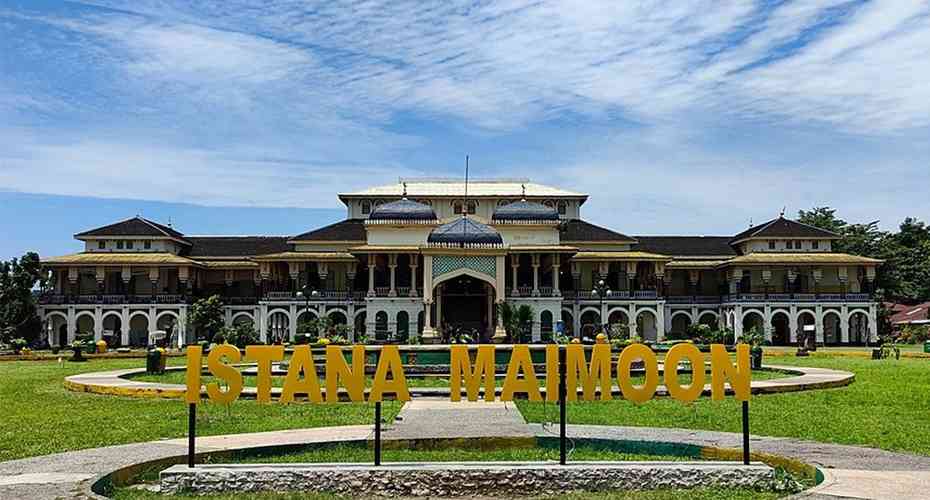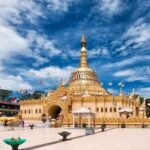Medan, the capital of North Sumatra, Indonesia, is a vibrant city known for its cultural diversity, colonial architecture, and rich culinary heritage. As one of Indonesia’s largest cities, Medan serves as a gateway to some of Sumatra’s most famous natural and cultural attractions, including Lake Toba and Bukit Lawang.
For travelers, Medan is famous as the entry point to North Sumatra. Aside from serving as the gateway to the region, the city also functions as a commercial and economic hub, this Indonesian city attracts not only shoppers, but also business professionals and entrepreneurs. Medan is a modern metropolis and like other Asian cities, it can be very busy and suffer from heavy traffic.
Medan has many tourist attractions that make the city one of the popular places to visit in Indonesia such as : Sultan Palace, Grand Mosque (Masjid Raya Al Mashun), Tjong A Fie Mansion, North Sumatra Museum, Graha Maria Annai Velangkanni Church, Chinese temple, Hindu’s temple, several old colonial building which was built during Dutch time etc.
Description of Medan Tourism:
1. Cultural Diversity:
Medan is a melting pot of cultures, home to various ethnic groups such as Batak, Malay, Chinese, Indian, and Javanese. This diversity is reflected in its architecture, festivals, languages, and especially its cuisine.
2. Historical and Religious Sites:
Medan features a range of impressive landmarks, including:
- Maimun Palace: A grand royal palace with Islamic and Malay architectural influences.
- Great Mosque of Medan (Masjid Raya Al-Mashun): One of the most beautiful mosques in Indonesia, built during the Deli Sultanate era.
- Sri Mariamman Temple: A colorful Hindu temple that reflects the Indian heritage of the city.
- Tjong A Fie Mansion: A well-preserved colonial-era house that belonged to a prominent Chinese businessman, showcasing a blend of European, Malay, and Chinese design.
3. Culinary Heaven:
Medan is renowned for its food scene. Must-try local dishes include:
- Bika Ambon: A chewy, sweet cake that originates from the city.
- Soto Medan: A creamy and aromatic chicken or beef soup.
- Lontong Medan, Nasi Padang, and Durian Ucok: Medan is also famous for its durian, considered among the best in the country.
4. Nature and Nearby Destinations:
While Medan itself is a bustling city, it’s also a strategic starting point for exploring:
- Lake Toba: The world’s largest volcanic lake, located about 4-5 hours from Medan.
- Berastagi: A highland town known for its cool climate, fruit markets, and views of Mount Sinabung and Mount Sibayak.
- Bukit Lawang: A popular ecotourism destination for jungle trekking and seeing orangutans in the wild.
5. Shopping and Local Markets:
Medan offers a variety of shopping experiences, from traditional markets like Pasar Petisah and Pasar Ikan Lama, to modern malls such as Sun Plaza and Center Point Mall.
Medan as a trading center on Sumatra Island
Medan, the capital of North Sumatra province, is an economic hub and commercial center for the region. This is the largest city in Sumatra Island, whose long been attracting residents from all over Indonesia to come and stay here. Due to these ethnic diversities, Medan is known for scrumptious delectable culinary spots, rich with many flavors.
The Medan metropolitan area is home to 4.6 million people, making it the fifth most populous metropolitan area in the country and the largest outside of Java.Medan is a multicultural metropolis and a busy trading city bordered by the Strait of Malacca.
A gateway to the western part of Indonesia, Medan is supported by the Port of Belawan and Kualanamu International Airport, both of which are connected to the city centre via toll road and railway. According to the National Development Planning Agency, Medan is one of the four main central cities of Indonesia, alongside Jakarta, Surabaya, and Makassar.
Medan was dubbed by the Dutch Parijs van Sumatra due to the city’s resemblance to Paris. Lamudi, a worldwide real estate portal, recognized Medan as one among six cities in Asia to feature and preserve several colonial architectural sites, while accompanying its growth as a metropolitan city.
Medan is also known as the “City of Million Shophouses”, as the majority of the population work in the trade sector, opening shops right under their houses. In recent years, the city has undergone rapid development, which made the residential property prices in Medan trend upward. According to Bank Indonesia (BI).
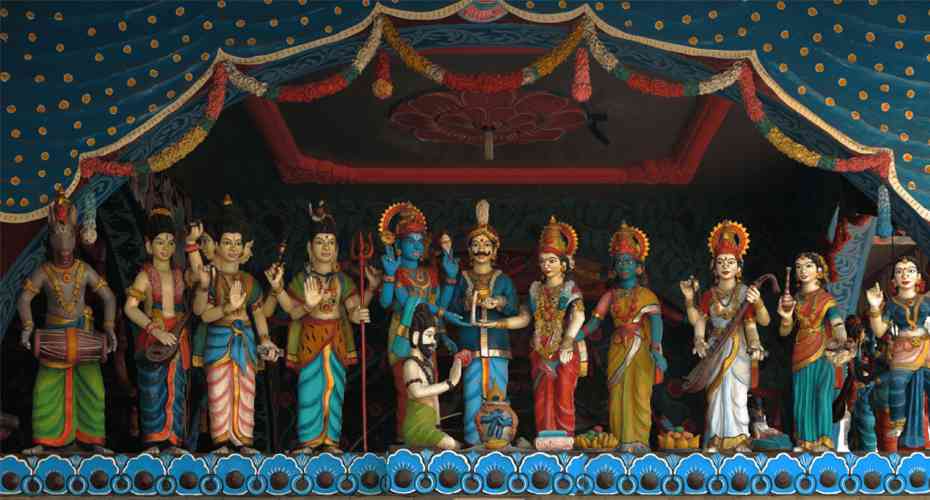
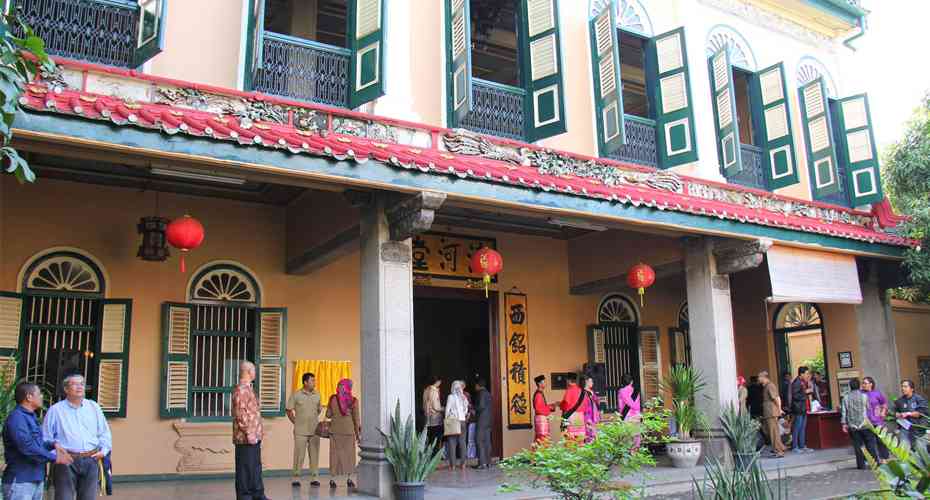
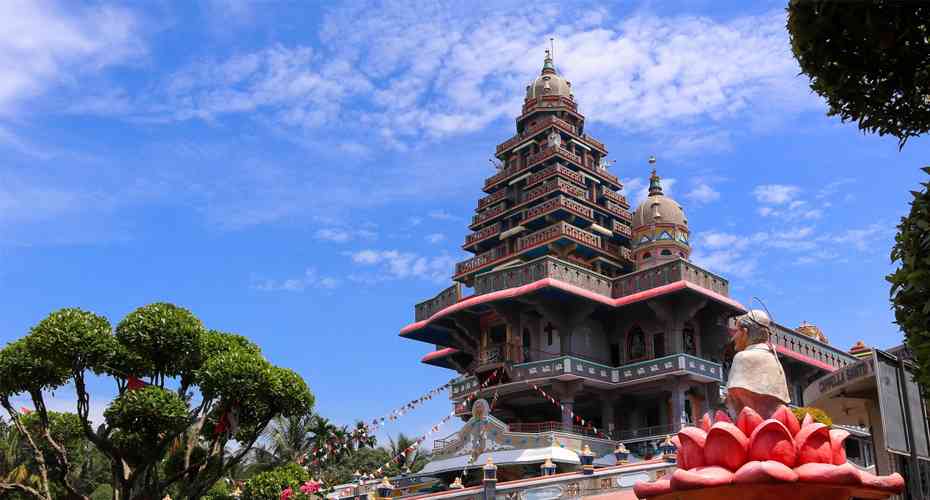
Medan City of Diverse Culture
Tourists can expect a diversity of cultures in this city, as almost every ethnicity in the country is represented in this place: Acehnese, Batak, Chinese, Indians, Javanese, Malay and Minang, however, there is no ethnic group that is considered a majority.
Before Medan became a sprawling city, it was a trading and seafaring town under Islamic Malay leadership during its early days. It was in the 19th century when the city’s commercial potential was uncovered. Because of plantation agriculture, Medan transformed from a small town to the prosperous city that it is today.
The influence of the Dutch and all other cultures that have made their mark in the city are clearly imprinted on the metropolis, as exemplified by the attractions and architectural landmarks found in Medan.
One example is the Maimoon Palace, which was built in 1888 by the Sultan of Deli. This grand attraction is a 30-room structure built with Malay, Mogul and Italian influences. Out of the 30 rooms, only the main room is accessible to the public. This is where tourists can find the opulent inaugural throne. Meanwhile, the back wing of the palace is occupied by the members of the family of the current Sultan.
Another famous attraction in Medan is the Tjong A Fie Mansion. The landmark is named after the Chinese-Indonesian merchant who used to live there. Like the Maimoon Palace, the most remarkable thing about the mansion is its architecture, which is a fusion of Victorian and Chinese styles.
Other attractions worth seeing include the Sri Mariamman Temple, the Mesjid Raya Mosque and the Bukit Barisan Military Museum.

